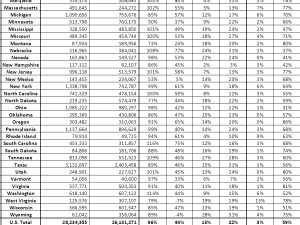Puerto Rican truckers rally against impending business tax hikes
By: Reuters | Sep 28 2015 at 03:37 PM | Intermodal
SAN JUAN, Puerto Rico - About 100 truck drivers in Puerto Rico protested on Monday against new business taxes set to go into effect next month, snarling traffic as they drove in a caravan and ultimately shut down a main thoroughfare outside the island’s capitol.
Drivers with La Central Autentica del Transporte union, or CAT, gathered outside the steps of Puerto Rico’s legislative headquarters, blaring upbeat music, as they denounced a 4 percent tax to be levied on most professional services, such as accountants and lawyers, that are paid for by businesses. Some other business-to-business transactions will be taxed at 10.5 percent.
Luis Falcon, the president of CAT, told Reuters that while the taxes will affect all businesses, truckers are already stretched thin because of gas costs, fines and other business expenses. Falcon claimed the average driver nets only about $11,000 a year; Reuters could not verify that figure.
More than 100 trucks, mostly 18-wheelers, idled on Avenida Luis Munoz Rivera, a main road leading past the capitol and into the tourist district Old San Juan, site of the governor’s mansion.
It is the latest act of resistance toward a reform plan by Governor Alejandro Garcia Padilla, proposed this month, to bring the poverty-stricken island out of $72 billion in debt.
In addition to the new taxes, the plan proposes spending reforms and benefit reductions to employees in both the public and private sectors, and demands concessions from financial creditors. The taxes have already been legislated, while the other proposals need legislation or U.S. federal government action, making them politically uncertain.
Garcia Padilla has preached cooperation and the need for all sides to share the burden. Instead, his reform plan has faced universal attack, with each faction demanding more concessions from the others and many criticizing the government for failing to propose headcount reductions within its own ranks.
Earlier this month, teachers and public workers rallied against benefit reductions outside the governor’s mansion, while bondholder groups have threatened litigation if the government tries to reduce their repayments.
Garcia Padilla, expected to face a strong challenge in next year’s gubernatorial election, may need a consensual restructuring to salvage his political future. The Puerto Rican people, meanwhile, need one to boost their island’s economy, where only about 40 percent of the population is in the workforce.









